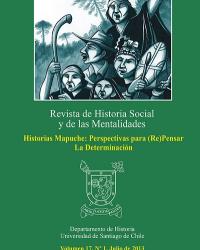Revuelta anticolonial en Bolivia del siglo XXI: continuación de la "guerra interna" y derrota de los partidos neoliberales 2000-2003
DOI:
https://doi.org/10.35588/1jwtdd61Palavras-chave:
Movimiento indígena, partidos kataristas e indianistas, nacionalismo étnico, revuelta anticolonial, colonialismo interno, autodeterminación indígena, partidos neoliberalesResumo
Para explicar el actual “proceso de cambio” que hoy vive Bolivia, es necesario remontarnos a los orígenes del nacionalismo étnico contemporáneo (época post-52) y en este proceso de su ascenso político social, todo el movimiento indígena ha contribuido desde diversas posiciones ideológicas hacía un horizonte auto-determinativo a principios del siglo XXI, que se expresó en la denominada “guerra del agua” (2000) y finalmente la “guerra del gas” (2003). Mediante un levantamiento general indígena Rural-Urbano (al que se suman los mestizos de clase media).Una revuelta anticolonial e indianista y Cerco al Poder Colonial, que abarca este periodo, hasta la caída de unos los gobiernos neoliberales más sangrientos de los últimos tiempos. De esta forma se inaugura una nueva etapa signada por el encumbramiento en la Presidencia de la República de un líder de origen Aymara, sindicalista y socialista (2005). Si bien otros sectores afines a corrientes izquierdistas han contribuido ampliamente para el proceso de construcción del Estado Plurinacional el aporte Indianista- Katarista es innegable. Asimismo en este artículo enfatizamos en el “proceso de descolonización” y la construcción del un verdadero Estado Plurinacional Comunitario.
Downloads
Downloads
Submetido
2014-06-14Publicado
Versões
- 2024-12-13 (2)
- (1)
Edição
Secção
Licença
Direitos de Autor (c) 2024 Revista de Historia Social y de las Mentalidades

Este trabalho encontra-se publicado com a Licença Internacional Creative Commons Atribuição 4.0.













